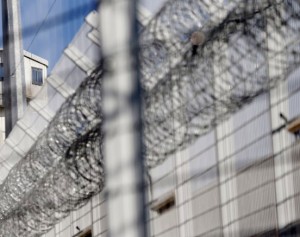Church prison ministry: Inmates endure slow justice system, ‘subhuman’ conditions
MANILA, Philippines — Many of the country’s prisoners have been locked inside overcrowded facilities for years while waiting for the ruling on their cases due to the slow justice system, a church prison ministry report said on Tuesday.
Thirty-five percent of the 114,368 inmates under the Bureau of Jail Management and Penology (BJMP) and the Bureau of Correction (BuCor) were actually found guilty of crimes and are serving their sentences and the remaining 65 percent are only charged but have never been convicted, the Catholic Bishops of the Conference Episcopal Commission for Prison Pastoral Care (ECPPC) said in a report.
“They are detained because their alleged crimes are not bailable or they can’t afford to pay the bail,” said Rodolfo Diamante, ECPPC executive secretary.
The study was released in time as the Church observes the annual Prison Awareness Week.
Slow justice system
Article continues after this advertisementDiamante attributed the prisons’ congestion to the slow judicial process, adding that “grossly deficient” facilities in national prisons and various jails further give rise to “subhuman” living conditions of prisoners.
Article continues after this advertisement“This is aggravated by insufficient budget for the basic needs of the prisoners,” he said.
The report also cited incidents “where exercise of authority is abused to extent of degrading the dignity of the prisoners such as of maltreatment, sexual harassment, extortion and other inhumane treatment.
The “struggle for supremacy” in prison which often results in “inmates exploiting or abusing other inmates and detainees” for personal gains and exacerbating the problems, “particularly in the use of prison labor” was also cited.
There are also “inadequate” provisions for the protection of youth and women offenders, elderly, the mentally challenged and political prisoners, according to the report.
“The objective of transforming the correctional process into an educating and humanizing experience for offenders has been dampened by the insufficient provision of the inmates’ basic needs,” Diamante said.
Diamante also slammed the justice system that it remained based on punitive measures where many view punishment as the best method of control.
He said that institutional imprisonment is not meant only to punish the offender but also to “correct and to prepare them to rejoin society after serving sentence”.
“Correction as part of the criminal justice system is both complex and crucial. It is essential to the maintenance of peace and order in society and of the human dignity of its straying members. Unfortunately, correction is least seen and known by the public,” said Diamante.
“Society is eager to recognize the duty of the state to punish the offender, but reluctant to see its equally important role to ‘correct’ the offender, little realizing that injustice and other societal factors contribute to the making of an offender,” he said.
Based on the ECPPC study, there are 39,127 inmates in penitentiaries and more than half of them or 22,286 inmates are at the New Bilibid Prison in Muntinlupa City as of April 2014.
RELATED STORIES
